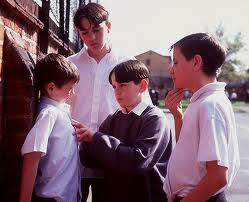 When I was young, my family moved around a lot. Not until high school did I attend the same school two years in a row. When you are the new kid, you inevitably meet the welcoming committee: the class bully and his minions. Having to deal with these encounters year after year, I found I used a number of techniques to address these situations. The resulting interactions undoubtedly influence my reactions, even to this day. They also can provide wonderful insight into workplace behavior.
When I was young, my family moved around a lot. Not until high school did I attend the same school two years in a row. When you are the new kid, you inevitably meet the welcoming committee: the class bully and his minions. Having to deal with these encounters year after year, I found I used a number of techniques to address these situations. The resulting interactions undoubtedly influence my reactions, even to this day. They also can provide wonderful insight into workplace behavior.
In thinking about this topic, it strikes me how my son, who is now in fourth grade, has not been in a fist fight at school, ever. His school prides itself on collaboration and non-violent conflict resolution. There are adult supervisors present on the playground, and they actively promote inclusion behavior and suppress exclusion behavior. As such, the school has eliminated cliques, and there is neither bullying nor school-yard scraps. This is not the world that I grew up in.
There is something about the new kid that attracts the attention of the class bully. The bully will make himself known to the new kid, and he always comes surrounded by followers, two, three, four or more. The bully and his gang confront, and the new kid reacts. There are a number of ways that a school kid can react: run, hide, ignore, fight to win, fight to lose, joke around, join the gang and more. Looking back, I have tried all these techniques. Some worked effectively, ultimately ending the bullying, and some actually promoted more bullying.
One poignant second grade memory I have was when a bully was promoting a fight between a minion and me. I redirected, bypassed the minion, and fought directly with the bully. This was a “fair” fight, no biting, no hair-pulling, no kicking, and no punches below the belt. I fought hard, but eventually lost the fight to the bigger kid. The next day, when one of the minions confronted me to pick another fight, the bully leader told him, “Nah, just leave him alone.” I may have lost that battle, but the war had been won – no more bullying that year.
What causes the bully to behave the way he or she does? How do the reactions to the bully’s overtures influence the outcome? And, how have these childhood interactions influenced our behaviors in the adult world?
